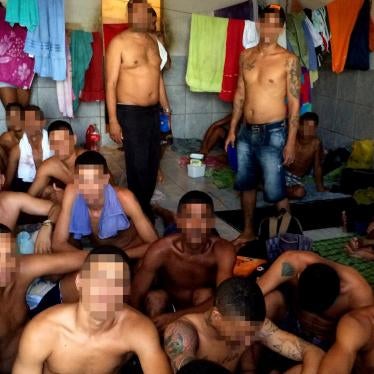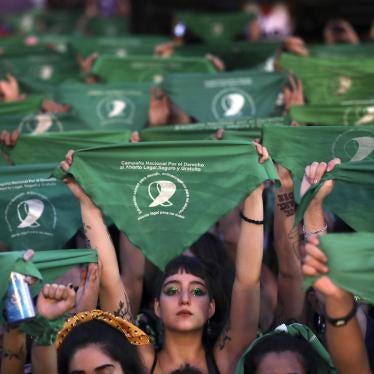Pernambuco’s prisons have become a haven of private enterprise. Imagine, if you can, what it is like to be imprisoned there. For 2,000 reais (USD530), you could buy a place to sleep, a narrow wooden cubicle where you can throw a mattress and prop a fan. That’s a deal, because if you have no money, you will have to compete with others to find empty floor space to sleep in the corridor.
To pass the time, you can try moonshine, marijuana, and crack, which are easily available behind bars. No money now? No problem, you can buy on credit -at double the usual price- and pay it back next weekend, when your mother comes to visit and brings you cash. But beware, you'll have to lay aside some of what she brings to pay a weekly “tax” just for the privilege of avoiding a beating.
The guy who pockets the money from all these rackets is the “keyholder,” the prison officials’ most trusted inmate. Officials give him the keys and the power over prison yards and cellblocks. He will use an inmate “militia” to threaten and beat you if you challenge his authority or owe him money, or he can arrange to have you sent to a punishment cell. Prison officials either turn a blind eye or receive kickbacks.
This terrifying picture of life in Pernambuco’s prisons emerged from my visit to four of them this year. I interviewed scores of inmates, former inmates, relatives, and officials.
While keyholders are a distinctive feature of Pernambuco, the situation there reflects a nationwide problem: Overcrowding and insufficient number of qualified personnel make it virtually impossible for the guards to control the prisons. For instance, in Maranhão, the gangs that terrorize São Luís, the capital, were actually formed in the prisons. They arose from inmates’ efforts to protect themselves, given the failure of the state to guarantee security, based on research I did in the prisons there at the beginning of the year.
Brazil’s prisons hold more than 607,000 people in facilities designed for about 377,000. Pernambuco’s prisons are the most overcrowded in the country, with three inmates for each official space.
But numbers can’t begin to tell the story: I entered a cell at Curado, the largest prison complex in Pernambuco, where 6 cement bunks served 60 men, and there was not even enough space on the floor to lie down at night. The stench of sweat, feces, and mold was overpowering. The keyholder let the men outside the cell for only an hour or two a week.
No wonder the prisons are cauldrons of disease. The prevalence of HIV in Pernambuco’s prisons is more than 40 times that of the general population, and the prevalence of tuberculosis is almost 100 times as high.
Of course, people who commit crimes should be held accountable and, when appropriate, serve prison sentences, provided those sentences are proportional to the crime. But almost 60 percent of detainees in Pernambuco have not been convicted of a crime. They are merely awaiting trial. Even if they were convicted, no one should be subject to this type of inhumane conditions.
There is a glimmer of hope, though.
This year, all of Brazil’s states have started custody hearing programs. During these hearings, judges can see and question detainees soon after they are arrested to decide whether they should be held or released pending trial. Judges can also detect signs of police mistreatment. Such hearings help reduce prison overcrowding by preventing the unlawful detention of nonviolent suspects. They are also required by international law, and under a number of treaties Brazil has joined.
Fixing the prisons is also a matter of self-interest for Brazil’s citizens. The formation of criminal rackets and gangs in prison inescapably leads to insecurity and violence outside the prison walls.
Brazil needs to take back its prisons and stop locking up people who should not be there in the first place. A custody hearing for every suspect arrested in every corner of the country would be a good first step.
A version of this article was published in Portuguese today in Folha de São Paulo.








